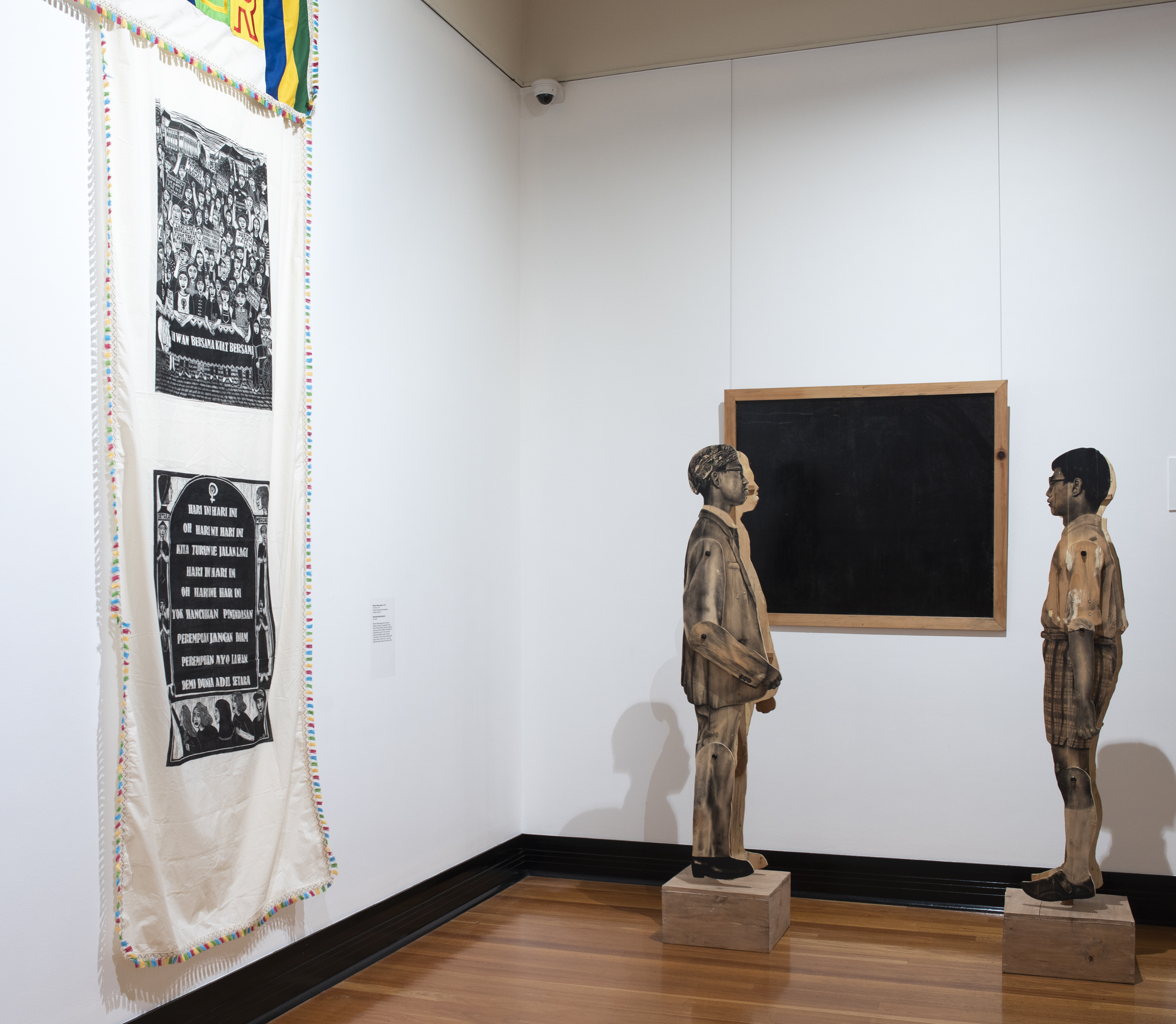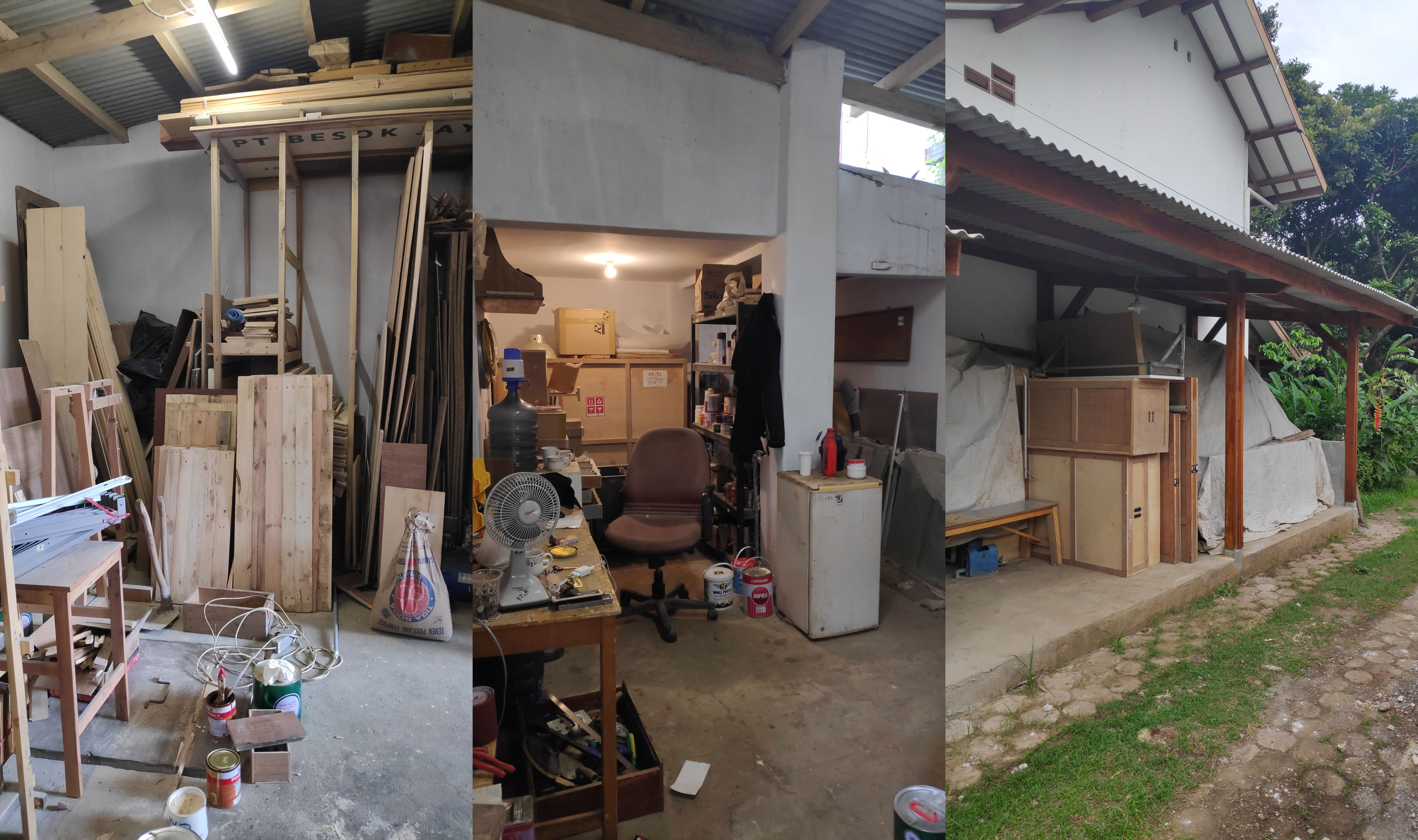Art at Work in Indonesia: Maharani Mancanagara
Contemporary Indonesian artist Maharani Mancanagara (Rani) introduces us to her studio and the ideas behind her sculpture The Patron (2014) currently exhibiting in '#Perempuan 2021'. Presented as part of the Castlemaine State Festival and with support from Project Eleven, this exhibition celebrates voices and unspoken stories of Indonesian women – a platform for artists to share issues that are not always openly discussed in Indonesia. Puppet-like and almost lifesize, Mancanagara’s work addresses issues around education in Indonesia.

How long have you been working in Bandung and what excites you about being there?
I grew up in Depok, West Java – Indonesia. Since studying, I moved to Bandung (180km away from Depok) 13 years ago. It’s not too far from the metropolis of Jakarta, but not too remote from civilization. Even though Indonesia is a tropical country, it’s quite cool here with an occasional warm sunny day.
Can you please describe where you work? What can you see out of your window?
I live and work in the upper (northern) area in Bandung. It’s a medium-size house, with enough space for a carpentry studio, artwork storage, clean area studio, with and office room, and a nice living area. I love this house. It’s quite high here, with lots of trees, but not too far from the main road. I can easily buy daily things with 10 minutes walk. My studio is also my home, I share the studio with my husband. The view of my 2nd-floor studio is a porch, where my assistants usually work. I usually coordinate with my colleagues from this window.

Tell us a little about your current work.
I am continuing from a series that I did a few years back about the mass killings in Indonesia in 1965-66. My late grandfather was one of the political prisoners during this time. I approach this tragedy metaphorically using animal folktale. Currently, I’m developing a continuation of that story by using a boardgame as a medium. By using the boardgame, I hope this work can spread more widely and be not just a work that we hang on gallery walls but something more accessible.
Can you share with us something of the story behind The Patron (2014)?
Knowledge is power, and education is a fundamental prerequisite for the development of politics, democracy, and social justice. In fact, in Indonesia, the idea of the importance of education is still not realized by many people, starting from the thought of the benefits of higher education, if the future of their children has been determined by their parents (for example, to take care of rice fields, livestock in cages, or take care of the household). This is rooted in the old education method, where girls were limited to education only up to the Hollandsch Inlandsche School / People's School (elementary school in the present), then prepared to be matched (for descendants of the nobility) or employed at home (for ordinary people).
Even now, pessimistic thoughts about schools that produce "robot humans" are starting to spread, the education provided is not balanced between thinking (cognitive) learning and feeling (affective) learning behavior. Yet learning is not just thinking. Because when people are learning, the people who are learning do various kinds of activities, such as observing, comparing, doubting, liking, enthusiastic, and so on. What is often alleged is that education is practiced as a series of instructions from teachers to students which causes the human personality to tend to be reduced by the system. If traced, this can happen because of its roots in the past which have become a tradition today, the "order" teaching method was introduced by the Dutch in 1643, where the task of teachers in schools was to cultivate the fear of God, teach the basics of Christianity, teach children to pray, sing, go to church, obey parents, authorities, and teachers.

Do you start with an idea or does your work develop more intuitively out of the process of working with materials or forms?
I have a habit to keep notes of all the ideas that pop up to me anytime. When I want to make an artwork, I just recall the ideas from these notes and break them down further with mood board and concept writings. After that, I do some digital sketches and turn them into physical work.
What music or podcast are you listening to when you work?
Usually, I only listen to 1 upbeat song that repeats all day long (even a month-long), because I need to keep up my pace of work with that song. By doing so, I can be more focused to finish my work. My choice of songs that I repeat usually from the 2000’s rock band like Linkin Park, Sum 41, Copeland, etc. Usually, my husband complains about it, hahaha...
Is your practice solitary or do you work with others?
I work with others. Because I have a day-to-day in arts management, I have 2 assistents who help me run the studio. Also, because my husband is an artist, we usually have a lot of discussions and support each other in our works.
Can our readers view your work in any other way at the moment?
Yes, I have a website for my works and sometimes I post on Instagram @mancanagara.
Is there something else you would like to add for our readers?
I hope we could meet someday in a street, during an exhibition, or even on a train!
June 2021